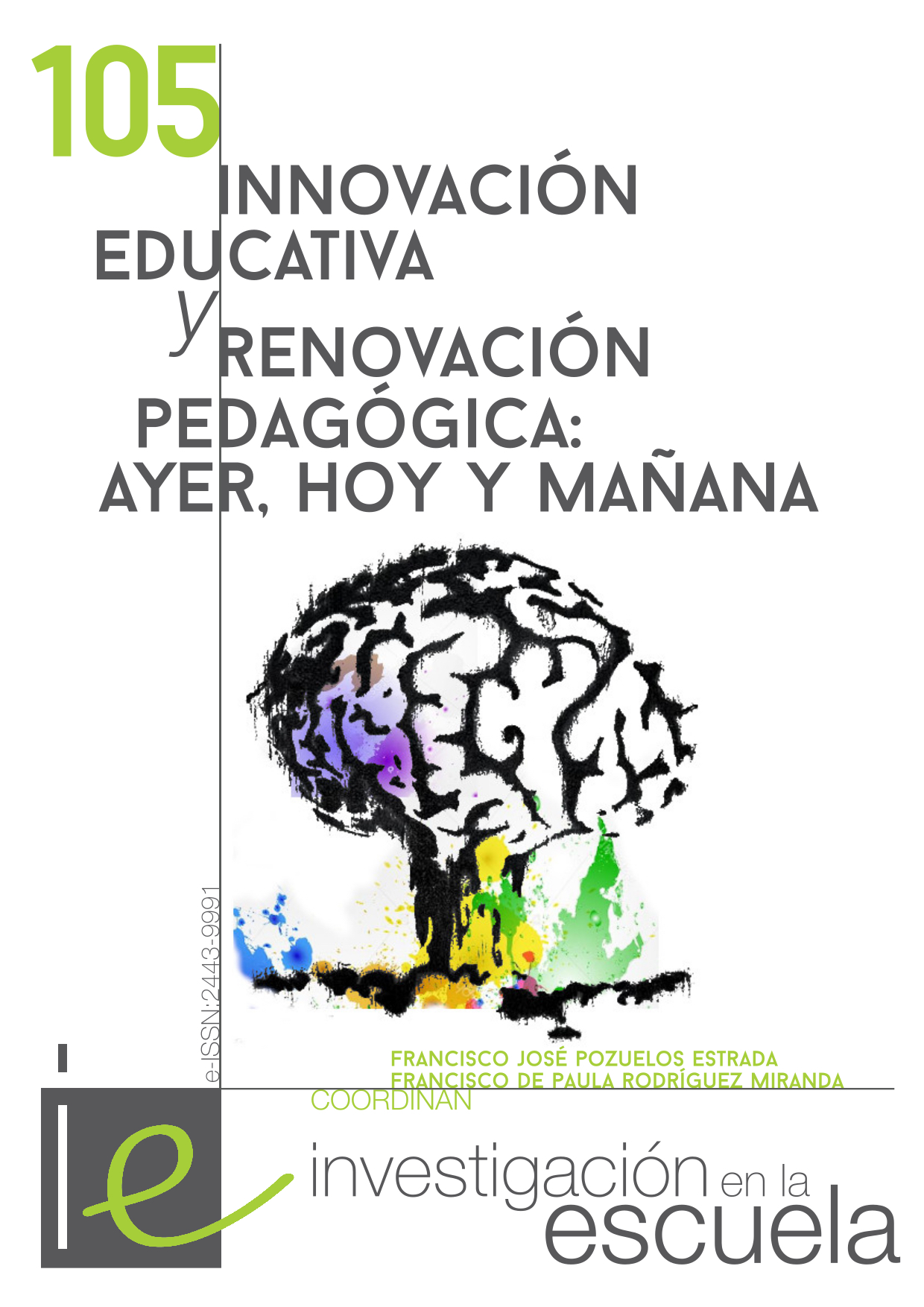Gulbenkian XXI School Learning Communities: an innovative experience
DOI:
https://doi.org/10.12795/IE.2021.i105.05Keywords:
educational innovation, well being, community, research project, learning, teachingAbstract
The research project "Promoting Change in Learning: Gulbenkian XXI School Learning Communities" sought to improve student learning through the acquisition of basic knowledge within the formal curriculum and the development of analytical and practical reasoning skills, resilience and responsibility, emotional, social and creative skills. The project was based on the “Learning for Well-being” paradigm, this approach favors a paradigm shift, moving from curricula designed fundamentally for cognitive development, to approaches that support the development of children and young people with the skills they need for life. The project was implemented in three schools from the Alentejo region, in the third, fourth (primary school), fifth ans sixth grades (middle school), and staterd with cohorts of third grade students. Seven classes from three groups of public schools in the Alentejo region participated in it. This article sought to analyze the impact of the project through the analysis of educational efficiency and effectiveness, comparing the school results and the completion time of the project's students with students from the Alentejo region and students from Continental Portugal. The results indicate that the students who participate in the project register higher scores in the analisys of the diferent indicators.
Downloads
References
"accepting that the fact that an important part of these skills is based on sciences that are poorly represented in current education programs" (Perrenoud, 2013, p. 154)
“transporting schools, school buildings and traditional learning environments into the 21st century (…) the pressure for change is particularly directed towards the role of teachers, leadership, educational support services, technology and spatial solutions and learning environments.” (Kickbusch, 2012, p. 87-88)
“to provide a conceptual understanding of the approach and a vision of the possibilities for those in Europe who are responsible for creating and influencing policy” (Kickbush, 2012, p.11)
Kickbush (2012) as:
a world in which people learn to fully engage and express who they are, living in the present moment as they develop, test and reinvent themselves for the future, in a harmonious commitment to themselves, family and friends, the community and the world at large. Well-being is realizing our own potential through physical, emotional, mental and spiritual development in relation to ourselves, others and the environment. (p.9)
“what is learned through the curriculum will be practiced in the learning environment, supported by family partnerships and other actions, and made explicit in local policies and practices” (Kickbusch, 2012, p. 83).
the “inquiry learning methods, based on projects or events, learning from creative problem solving and community learning processes” (Kickbush, 2012, p. 88).
, “with the exchange of ideas and experiences and cooperative work that promotes an innovative culture in schools and a future more cultured, critical and solidary citizenship” (Sebarroja, 2001, p.130).
participating teachers were provided with specific training programs which, as the project coordinator states, “the key to the process would lie in the ability to respond quickly to the problems and needs felt by the teachers and to make them feel autonomous and able to explore new approaches and new resources and without loss of pedagogical leadership.” (“Autor´”, 2016, p.33)
Downloads
Published
How to Cite
Issue
Section
License
Copyright (c) 2021 Investigaci´ón en la Escuela

This work is licensed under a Creative Commons Attribution-NonCommercial-ShareAlike 4.0 International License.
Authors who publish in this journal accept the following conditions:
- Authors retain copyright and grant the journal the right of first publication, with the work registered under a Creative Commons Attribution-NonCommercial-ShareAlike 4.0 International License (CC BY-NC-SA 4.0), which allows third parties to use the published work, provided that proper acknowledgement is given; the authorship of the work and first publication in AVANCES are mentioned; the material is not used for commercial purposes; and, if you create other material from the original material (e.g. a translation), you must distribute your contribution under this same licence as the original.
- Authors may enter into separate and additional contractual arrangements for non-exclusive distribution of the version of the article published in this journal (e.g., inclusion in an institutional repository or publication in a book) as long as they clearly indicate that the work was first published in this journal.
- Authors are allowed and encouraged to publish their work on the Internet (e.g. on institutional or personal websites) before and during the review and publication process, as it may lead to productive exchanges and to a wider and faster dissemination of the published work (see The Effect of Open Access).


